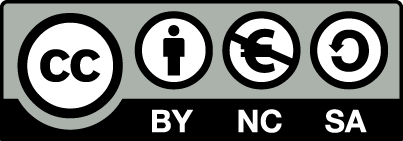ABOUT
What is YSEP
The “Youth Social Entrepreneurs Potential” project aims to enable young people, who want to develop their business ideas while generating a positive “return to society”, to develop their social entrepreneurship skills and critical thinking. It also focuses on helping them to acquire the required competences to identify and value the resources of their local cultural and natural heritage.

What are the objectives
During the whole duration of the project, the main objectives are:
- Promote a common understanding of the field of social entrepreneurship by exploring different concepts, formats, and models of social entrepreneurship
- Facilitate the transfer of good practices and ideas from social enterprises, strengthen community spirit and increase the motivation of young people to participate in society by creating a set of existing local social entrepreneurship initiatives
- Helping young people, regardless their backgrounds, statuses or educational levels, to learn how they can detect local needs and use their cultural and environmental heritage to launch a social initiative. This will be achieved by creating a European training methodology for Youth (modules, training, learning materials)
- Developing young people’s entrepreneurial skills to identify resources and business opportunities within the local community and enhance cultural heritage, social and environmental skills, as well as the basic and cross-cutting skills, language and numerical skills
- Share best practices and ideas on social economy initiatives in communities and create a best practice manual as a result of all project activities
Expected Results
Our project aims to put together all three of these actions:
- Mobilize: Our project aims to encourage effective civic, economic, social, cultural and political participation among young people to support and create learning opportunities for participation, by raising awareness of participatory actions and helping young people to prepare for participation;
- Empower: By encouraging young people to take their own lives, by providing them with the tools to become social entrepreneurs.
- Connect: By fostering connections, relationships and the exchange of experiences between young people from the countries included in the project.
The project will produce the following results:
Result 1 – A blog and point of contact between local/regional social business initiatives from each partner country that will serve for increasing the visibility of social entrepreneurship;
Result 2 – A glossary with definitions of concepts related to social entrepreneurship (social economy vs solidarity economy, circular economy, etc.) in order to foster a common understanding of the topic;
Result 3 – A collection of a least 20 successful social entrepreneurship initiatives from all partner countries. Each partner will research and select a series of innovative social entrepreneurship initiatives in their country and realize a description so that it serves as inspiration and motivation for the beneficiaries learning about social entrepreneurship.
Result 4 – A database of Open Educational Resources (OER) and learning/training/assessment materials mapped on the internet in CC license ( virtual books, guides, glossaries, articles, worksheets, audios, videos, animations, recommended links, etc.) or created by the partners ( PDFs, PowerPoint presentations and videos created by the partners and upload on Slideshare or Youtube, articles on the blog in easy to navigate format, etc.) The resources will be accessible for everyone and suitable for self-paced learning.
Based on these actions, the YSEP project will produce intangible results related to the knowledge, skill attitudes and experience gained by participants:
- Increased youth’s ability to identify resources and business opportunities within the local community and enhance cultural, social and environmental heritage;
- Development of basic and cross-cutting skills (such as social entrepreneurship, running a social enterprise, etc.);
- Increased social and civic skills and critical thinking;
- Increased language and communication skills and intercultural skills among learners of different languages;
- Increased ICT and social media skills,
- Increased sense of belonging and community spirit;
- New attitudes and values relating to active citizenship and European social and cultural heritage;
- Increased awareness of equality, including gender equality, non-discrimination, social inclusion and the challenges of today’s society.
Methodology
The process of the project will have 5 phases:
- Define problems, improvement opportunities, goals, requirements
- Measure process performance.
- Analyze the process to understand causes for divergence, poor performance.
- Improve process performance by addressing the causes detected in the previous step.
- Control the improved process.
These five steps are repeated, in order to address the continuous improvement goal.

ERASMUS+DISCLAIMER
The European Commission support for the production of this publication does not constitute an endorsement of the contents which reflects the views only of the authors, and the Commission cannot be held responsible for any use which may be made of the information contained therein.

LICENSED UNDER CREATIVE COMMONS

This work is licensed under a Creative Commons Attribution – NonCommercial – Sharealike 4.0 International License.

